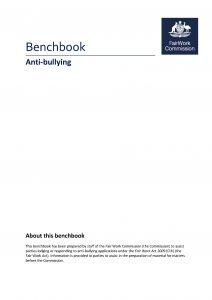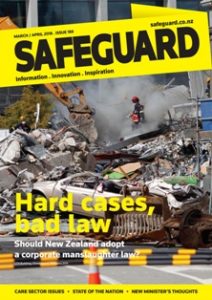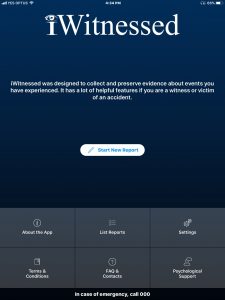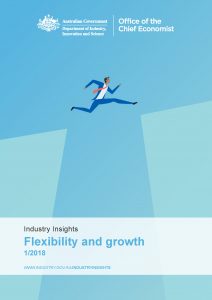 Australia’s Fair Work Commission (FWC) has released the latest (March 2018) edition of its Anti-Bullying Benchbook. This is a regularly published document that offers background to its decisions and definitions used by the FWC through case studies and plain-English explanations. The Benchbook clearly states that any occupational health and safety (OHS) issues are to be directed to the relevant OHS regulator but the book provides useful insight to a more (and limited) industrial relations approach to workplace bullying.
Australia’s Fair Work Commission (FWC) has released the latest (March 2018) edition of its Anti-Bullying Benchbook. This is a regularly published document that offers background to its decisions and definitions used by the FWC through case studies and plain-English explanations. The Benchbook clearly states that any occupational health and safety (OHS) issues are to be directed to the relevant OHS regulator but the book provides useful insight to a more (and limited) industrial relations approach to workplace bullying.
A major attraction of the


 Screen Australia
Screen Australia
 Australia’s
Australia’s 
 Australia has received its own local focus for the #MeToo concerns about sexual harassment in the workplace.
Australia has received its own local focus for the #MeToo concerns about sexual harassment in the workplace.